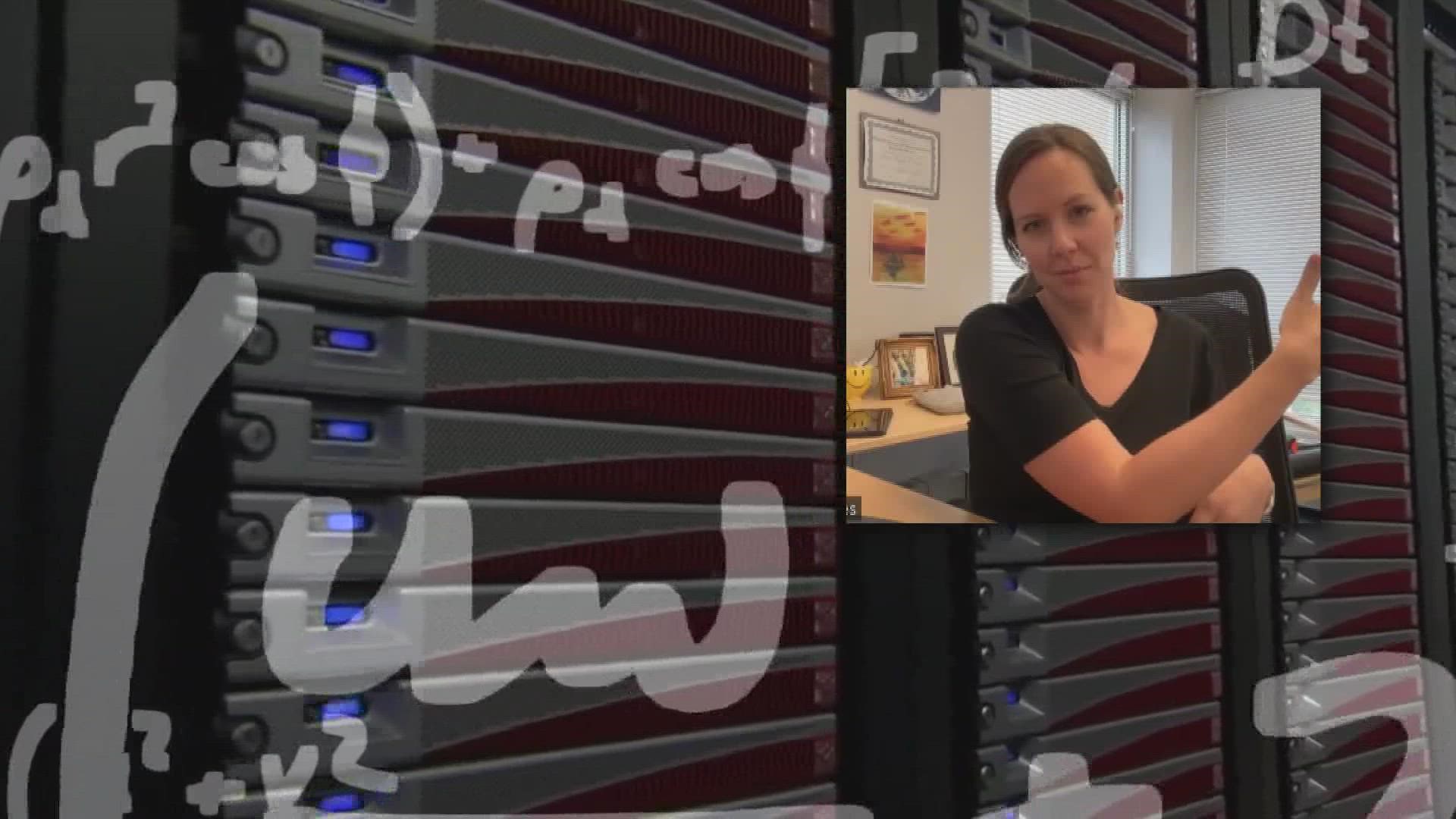FORT COLLINS, Colo. — The science of weather prediction improves every year but there are still so many mysteries to solve.
Colorado State University (CSU) professor Elizabeth Barnes believes that some of those answers might come from artificial intelligence (AI) also known as machine learning. Essentially that’s when a computer program makes a prediction based on patterns that it finds in huge amounts of data.
"It can sort through data much faster than we can and in most cases it can also do it better," said Barnes. "And sometimes it might even find relationships that we didn't know were there. We can learn new science."
Barnes said she is often impressed with the accuracy of an AI-driven climate forecast but she is more interested in learning how the machine got that answer in the first place.
What Barnes and her collages are working on at CSU is called Explainable Artificial Intelligence (XAI). Barnes said it's like cracking the lid of the so called black box that seals the methods behind the machine.
“We take that forecast or that prediction, and the idea is that you push that information back through your machine learning model," said Barnes. "And it gives you a map of what was important for it to make its decision. What were the ingredients it used.”
Barnes said that road map of information has already led to a new understanding of how the ocean conditions impact long-range weather more than a month in advance.
"It's also helping us learn more about our climate models," Barnes said "In the insides of the models, pieces are actually being replaced with machine learning algorithms to do a better job."
Barnes said one of the beauties of machine learning is that you can keep the rules very simple and can almost use any type of data, even maps, words and images instead of just numbers and statistics.
It's a straight data driven approach to prediction modeling; AI doesn't need any equations to find a solution. Unlike numerical weather forecast models which are a more physical approach. Those models use things like Newtonian and Thermodynamic equations to make a weather prediction.
“Machine learning tools allow us to be creative about how we do science," said Barnes. "This has allowed me to think about how I ask questions and what kinds of questions I ask, without barriers in the way I think a lot of climate science had in the past.”
SUGGESTED VIDEOS: Latest from 9NEWS
9NEWS+
9NEWS+ has multiple live daily shows including 9NEWS Mornings, Next with Kyle Clark and 9NEWS+ Daily, an original streaming program. 9NEWS+ is where you can watch live breaking news, weather updates, and press conferences. You can also replay recent newscasts and find videos on demand of our top stories, local politics, investigations and Colorado specific features.
To download 9NEWS+ on Roku search for KUSA.
To download 9NEWS+ on Fire TV search for 9NEWS.

